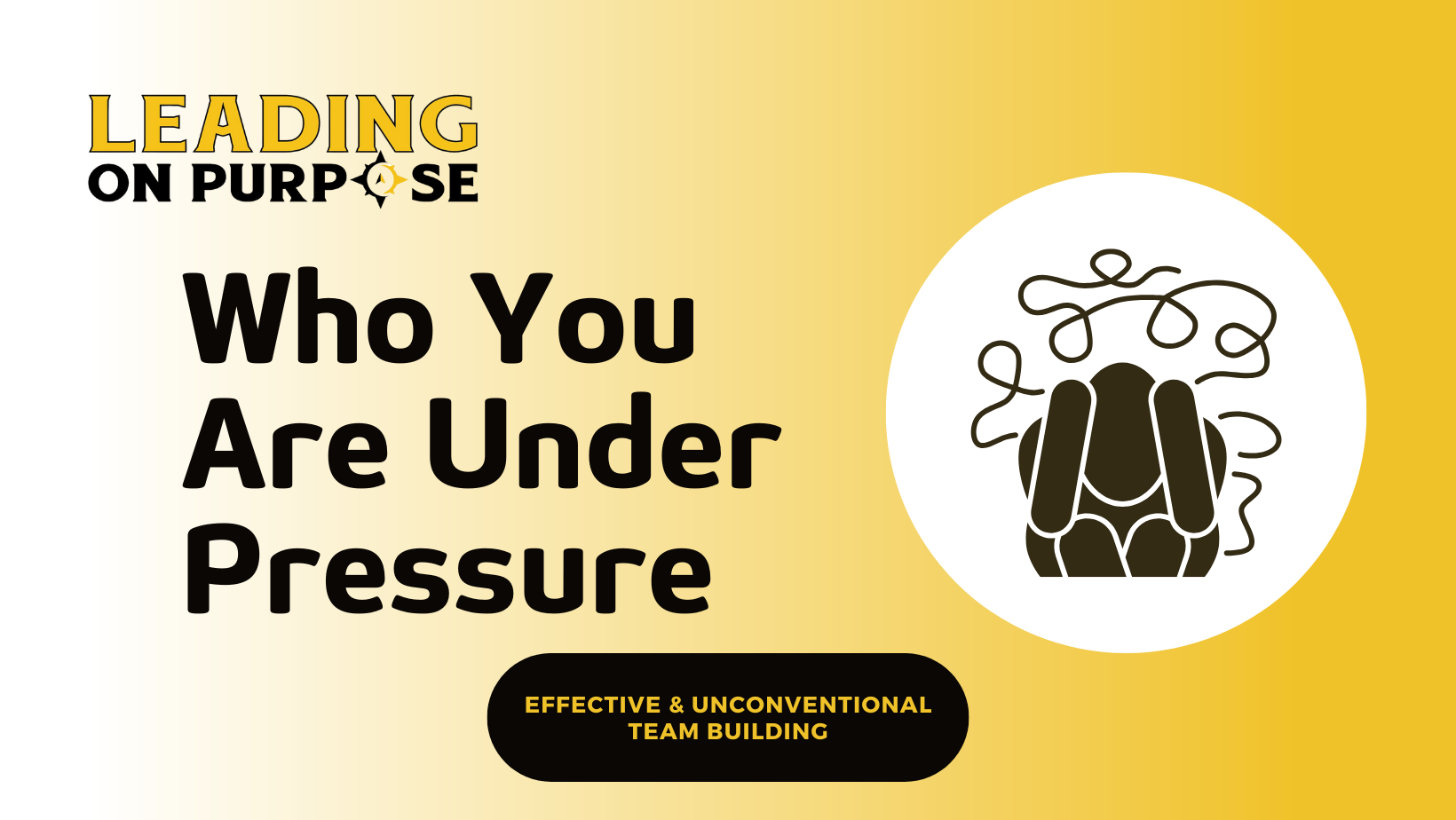
Leading When Your Mind Is on Tragedy
Over the last week and a half, I’ve struggled mentally. Hurricane Helene wreaked havoc, leaving devastation across Western North Carolina and the southeast. I called Upstate South Carolina my home for five years, and I've hiked several hundred miles in WNC. I've lead cabin getaways, multi-day hikes, and taken clients ziplining in this mountainous region. In fact, my next men's ministry hike was scheduled there in just a few weeks. A piece of my heart resides in this beautiful, now devastated, region.
My thoughts have been with those hit hardest, and I feel the weight of each painful loss. I grieve alongside the families who’ve lost loved ones. Yet, as I try to process this tragedy, I find myself needing to move forward.
The reality is, the world doesn’t stop turning, especially if your area wasn't directly affected. Business doors remain open, deadlines still loom, and customers continue to expect service. But what happens when your mind is preoccupied with loss, sadness, and worry?
As another deadly hurricane approaches Florida, I find myself once again in that emotional storm, trying to lead with clarity while my thoughts are elsewhere. Today’s newsletter is about navigating this difficult balance and leading through chaos when your heart is weighed down by tragedy.
Your Work Matters
First and foremost, it’s important to remember that the work you do matters. Going to work doesn’t mean you’re ignoring the tragedy. In fact, sometimes, it’s the very act of showing up, leading with intention, and serving your team that provides some solace in the midst of disaster. It’s a reminder that life continues, and with it, so does your ability to make an impact.
My employees rely on me for their incomes. When I keep the business going, I ensure they have stability. That paycheck helps them support their families, and in turn, their communities. When I make money, I can donate more to those in need, contributing to recovery efforts.
There is a ripple effect where my actions, even when driven by the necessity of business, can help more than just those immediately around me.
On top of that, my customers also have needs. Some may be directly impacted by the storms, while others still need services to keep their own lives and businesses running. By continuing to serve, we play a role in helping others move forward.
Balancing Leadership and Compassion
Leading through a time like this isn't solely about continuing operations; it also involves balancing leadership with compassion. You need to acknowledge that both you and your team might be emotionally affected. You might have employees who are worried about family members in the impacted areas or even those who are facing losses themselves.
In these moments, leadership becomes dependent on empathy. Giving space for emotions, creating an environment where people feel safe to express their concerns, and offering flexibility when needed are critical. You don’t have to push through the chaos with a “business as usual” mindset. It’s okay to pause, reflect, and support your team through both the emotional and practical challenges they’re facing.
Finding Strength in Routine
While it might seem impossible to focus when your heart is heavy, sometimes the routine of work can offer a lifeline. There’s a comfort in continuing with familiar tasks when everything else feels uncertain. The structure of daily responsibilities can create a sense of normalcy, even if the world outside feels anything but normal.
For me, I’ve found that sticking to routines, like my morning routine I recently shared (read more here), helps me stay grounded. It doesn’t take away the pain or the worry, but it gives me something tangible to focus on.
Take Care of Yourself
Lastly, in times of chaos, it’s essential to care for yourself too. You can’t lead effectively if you’re running on empty. Make space for rest, reflection, and moments of peace, even if they’re brief. Whether it’s taking a walk, meditating, or simply stepping away from the news for a bit, those small actions help you recharge and refocus.
It's so silly, but it can feel like turning off the news is a betrayal to those who have lost everything. It may feel as though tuning out is turning your back on those who are suffering, but in reality, taking a break is a necessary step to stay grounded. You can't pour from an empty cup, and when you're emotionally drained, your ability to help others is diminished. Stepping away for a moment doesn’t mean you care any less... It simply means you’re preserving the energy you need to continue making a difference.
It may feel as though tuning out is turning your back on those who are suffering, but in reality, taking a break is a necessary step to stay grounded. You can't pour from an empty cup, and when you're emotionally drained, your ability to help others is diminished. Stepping away for a moment doesn’t mean you care any less. It means you’re preserving the energy you need to continue making a difference.
The truth is, whether you’re leading a team, supporting a community, or helping loved ones, you need to be at your best. Giving yourself permission to rest, reflect, and recharge benefits everyone who depends on you. It's an act of self-care that allows you to show up stronger, more focused, and better equipped to lead through the challenges ahead.
Leadership during difficult times requires resilience, and resilience begins with self-compassion.
Leading during a tragedy isn’t easy, and there’s no perfect way to navigate it. But by remembering the value of your work, offering compassion to your team, and finding strength in routine, you can continue to lead through the storm, both the literal and emotional ones.
For more on this topic, check out these blog posts:









